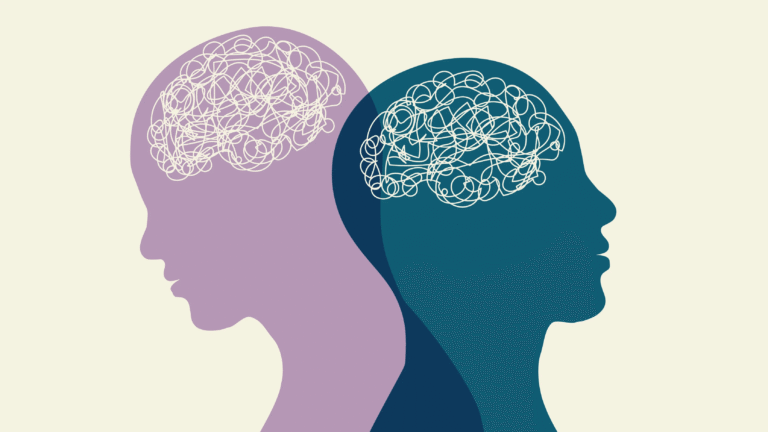Pregnancy is a beautiful, transformative experience that can also bring its share of stress and uncertainty. Mindfulness offers a powerful way to manage these feelings, helping you connect deeply with yourself and the new life you are nurturing. This practice doesn’t just help ease anxiety—it enriches your journey, making each moment more meaningful and calm.
By incorporating mindfulness into your daily routine, you invite a gentle awareness into your life, which can strengthen your emotional resilience and enhance your connection with your baby. This approach is not only about finding peace in the present but also about building a foundation of love and care that supports both of you.
Emotional and Physical Changes During Pregnancy
Pregnancy is a deeply transformative period marked not only by growing excitement but also by considerable challenges. As the body prepares to nurture new life, expectant mothers undergo a series of profound emotional and physiological shifts. These changes, while natural, can sometimes lead to increased stress and anxiety.
1. Emotional Shifts During Pregnancy
Expectant mothers often experience a spectrum of feelings, from joy and anticipation to fear and vulnerability. These emotional shifts can be attributed to hormonal changes that enhance emotional sensitivity. The surge of hormones like estrogen and progesterone can impact mood regulation, leading to feelings of stress or anxiety.
2. Physical Changes and Their Impact
The physical changes during pregnancy are just as profound as the emotional ones. As the body adjusts to support the growing baby, expectant mothers might notice heightened fatigue, nausea, and an increased body temperature — this last being a natural physiological response to pregnancy. These changes can sometimes amplify stress levels, as the body’s normal rhythms are altered to accommodate the developing fetus.
3. The Role of Mindfulness in Managing Changes
Mindfulness serves as a crucial tool in managing both the emotional and physical changes during pregnancy. By focusing on the present moment, expectant mothers can mitigate the overwhelming feelings that arise from hormonal and bodily adjustments. According to research, mindfulness can reduce pregnancy-related anxiety and stress, leading to better outcomes for both mother and baby. Engaging in regular mindfulness exercises helps maintain emotional balance and physical well-being throughout this life-changing period.
Core Mindfulness Practices for Expectant Mothers
During pregnancy, engaging in mindfulness practices can be a profound way to manage various emotional and physical challenges. Cultivating a regular mindfulness routine helps expectant mothers boost their mental resilience and create a tranquil, supportive environment for themselves and their growing baby.
1. Breathing Exercises
Techniques such as deep abdominal breathing are fundamental to mindfulness and highly beneficial for pregnant women. They not only aid in reducing stress and anxiety but also enhance oxygen flow to the developing baby. The “4-7-8” breathing technique, which involves inhaling for four seconds, holding for seven, and exhaling for eight, is a simple yet effective way to calm the mind and ease tension.
2. Body Scans
Engaging in body scans involves a mental sweep from head to toe, paying attention to any sensations, tensions, or discomforts without judgment. This practice deepens expectant mothers’ bodily awareness, helping them recognize and accept the physical transformations and discomforts of pregnancy. It promotes relaxation and can serve as a comforting routine before bedtime to improve sleep quality.
3. Mindful Movement
Incorporating mindful movement through activities like prenatal yoga or gentle stretching benefits the mind and body. These practices maintain physical flexibility and focus on mindful breathing, which can alleviate back pain, enhance circulation, and ease general pregnancy discomfort. Adapted for all pregnancy stages, these exercises strengthen muscles crucial for childbirth.
4. Guided Meditation
Guided meditation can be particularly helpful for expectant mothers by providing structured mental relaxation. Through audio recordings or led sessions, pregnant women are guided through relaxing visualizations or thought patterns that help manage pregnancy-related stress and anxiety. This practice supports emotional stability by fostering a deeper connection with the inner self and the developing baby.
5. Mindful Eating
It encourages a conscious approach to nutrition during pregnancy, focusing on the quality of food intake and the experience of eating. Mindful eating helps expectant mothers tune into their body’s needs and responses to different foods, promoting better digestion and satisfaction with meals. This practice can also be instrumental in managing pregnancy cravings and maintaining a healthy weight.
Integrating Mindfulness into Daily Life
Incorporating mindfulness into daily life can significantly enhance the pregnancy experience, offering a path to calm and centeredness. Below are practical ways expectant mothers can seamlessly integrate mindfulness practices into their everyday activities, ensuring these techniques provide continuous benefits throughout pregnancy.
1. Establishing a Routine:
Start with a few minutes each day dedicated to practices like mindful breathing or body scans, gradually increasing the duration or variety as these activities become a habit. Consider timing—mornings for energizing practices and evenings for relaxing techniques.
2. Mindful Moments Throughout the Day:
Incorporate mindfulness into routine tasks, such as practicing deep breathing before starting the car or conducting mini-body scans while waiting in line. Use these brief sessions to maintain a constant connection with the present moment, reducing stress.
3. Creating a Mindful Space:
Designate a quiet corner of your home as a mindfulness space with comfortable seating and minimal distractions. Use this area for longer sessions like guided meditations or prenatal yoga, helping to establish a mental boundary where external stresses are left behind.
4. Engaging with Mindfulness Apps:
Utilize mindfulness apps to maintain practice; these can offer structured sessions ranging from short breathing exercises to more extended meditation sequences. Apps provide variety and structure, making it easier to stay committed to mindfulness throughout pregnancy.
5. Partner Participation:
Involve your partner in mindfulness practices to enhance personal practice and strengthen the relationship. Partners can join in on activities such as guided meditations or prenatal yoga, fostering shared moments of connection.
Wrapping Up
Integrating mindfulness into your pregnancy journey can profoundly influence both your mental well-being and physical health. By embracing practices such as mindful breathing, body scans, and gentle movement, you create a nurturing environment for yourself and your baby. Remember, each moment of mindfulness is an investment in your emotional resilience and a peaceful pregnancy.












